Catteruccia Lab
In the Catteruccia lab, we are motivated by our conviction that no one should suffer from malaria and other vector-borne diseases. We conduct rigorous science to advance this common goal, while fostering a safe and vibrant environment of intellectual curiosity, collaboration, and fairness, where any form of discrimination is wholly rejected.
651 Huntington Avenue
FXB Building, 3rd floor
Boston, MA 02115

About the Catteruccia Lab
In our research group we study the molecular and behavioral parameters that are key to the ability of Anopheles mosquitoes to transmit malaria, with special emphasis on reproductive biology and vector-Plasmodium interactions. Our aim is to provide crucial knowledge to aid the development of new, effective tools for mosquito and malaria control. A key component of our research includes fieldwork studies in Africa on mating biology and natural malaria infections. These studies, in collaboration with IRSS in Burkina Faso, ICIPE in Kenya and other partners, are expanding our understanding of mosquito reproductive biology, mosquito-microbiota interactions, and natural malaria infections.
Mission Statement
Our lab works to eradicate the global burden of malaria, a disease that disproportionately impacts tropical and subtropical countries, with devastating effects heightened by its intersection with poverty. We recognize that our research has international relevance, and we strive to conduct fair and ethical science within our lab and global communities.
Collaborations with scientists in malaria-endemic countries keep our science grounded in the needs of the communities we aim to serve.
As a research group, our goal is to promote health and fairness inside and outside our own communities. We welcome all people that share this mission without any form of discrimination, and we encourage members to engage in activities outside of their research, such as volunteering, advocacy, outreach, and mentorship. Our strengths come from bringing researchers of many backgrounds and diverse viewpoints together to work as a team.
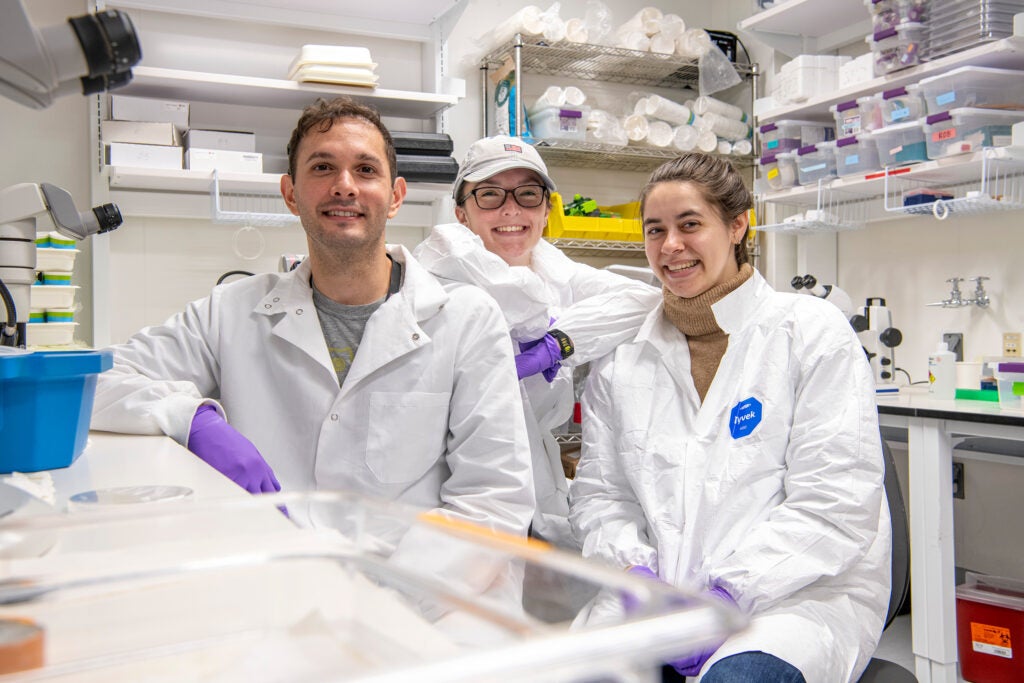
Support Harvard Chan School
Every gift contributes to our mission of building a world where everyone can thrive. To learn more about how you can support The Catteruccia Lab, please contact Carter Brown.
Why Malaria?
Malaria, a leading cause of death in tropical and subtropical regions, is transmitted by the bite of female Anopheles mosquitoes.
In Africa, where 90% of deaths occur, the major malaria vector is the mosquito Anopheles gambiae. Females of this and related species have a high reproductive capacity that is ensured by a single mating event followed by multiple blood feeding cycles.
In our research group we study the molecular and behavioral parameters that are key to the ability of Anopheles mosquitoes to transmit malaria, with special emphasis on reproductive biology and vector-Plasmodium interactions. Our aim is to provide crucial knowledge to aid the development of new, effective tools for mosquito and malaria control.
Reproductive biology in Anopheles mosquitoes
Study of molecular and behavioral parameters that are key to the ability of Anopheles mosquitoes to transmit malaria
Flaminia Catteruccia is a professor in the Department of Immunology and Infectious Diseases at the Harvard T.H. Chan School of Public Health and a Howard Hughes Medical Institute investigator. Her research focuses on the study of the molecular basis of reproductive biology in Anopheles mosquitoes, the malaria vectors, and the factors that shape the development of the malaria parasite during mosquito stages. Her research program integrates basic molecular biology investigations with high-impact translational studies.
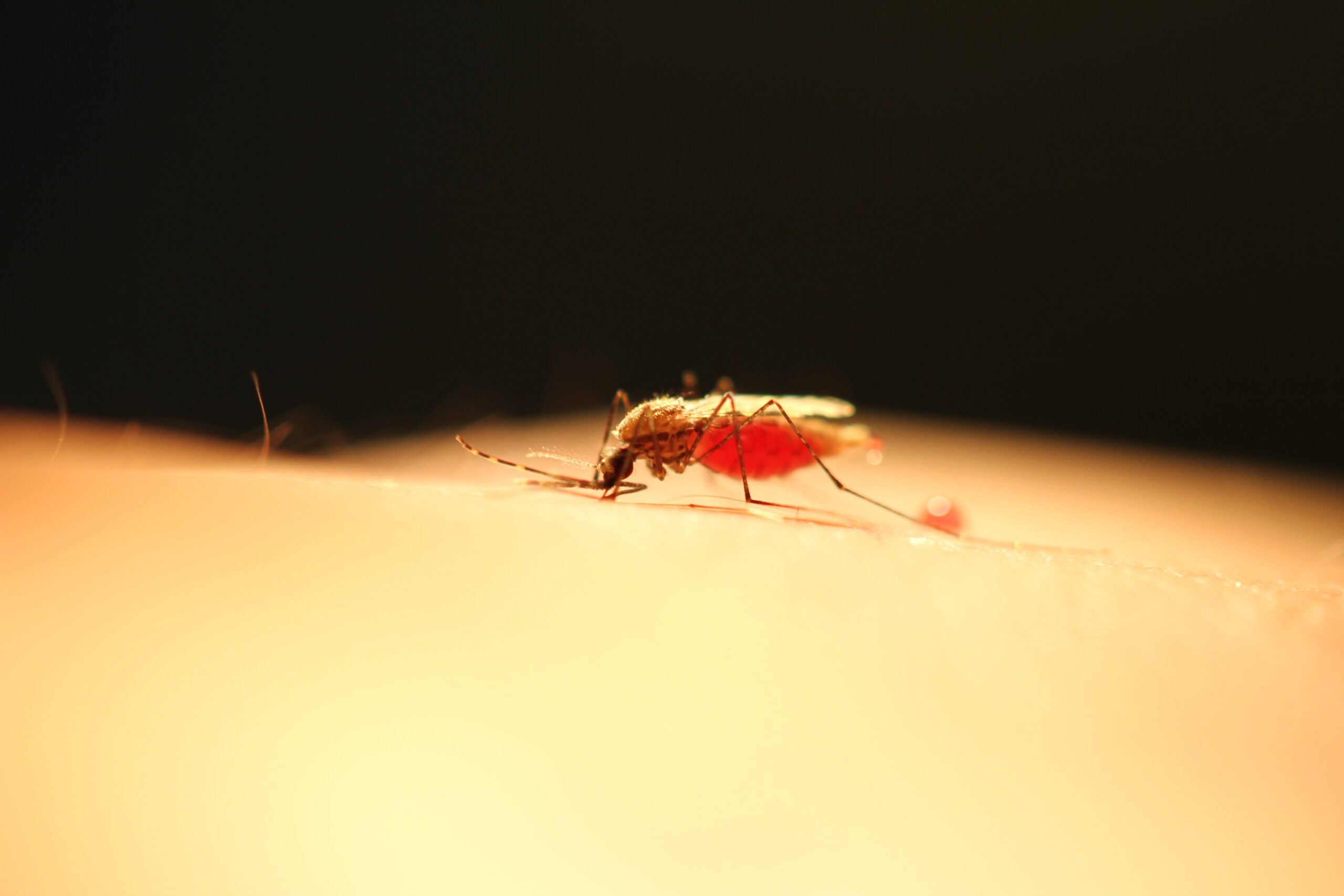
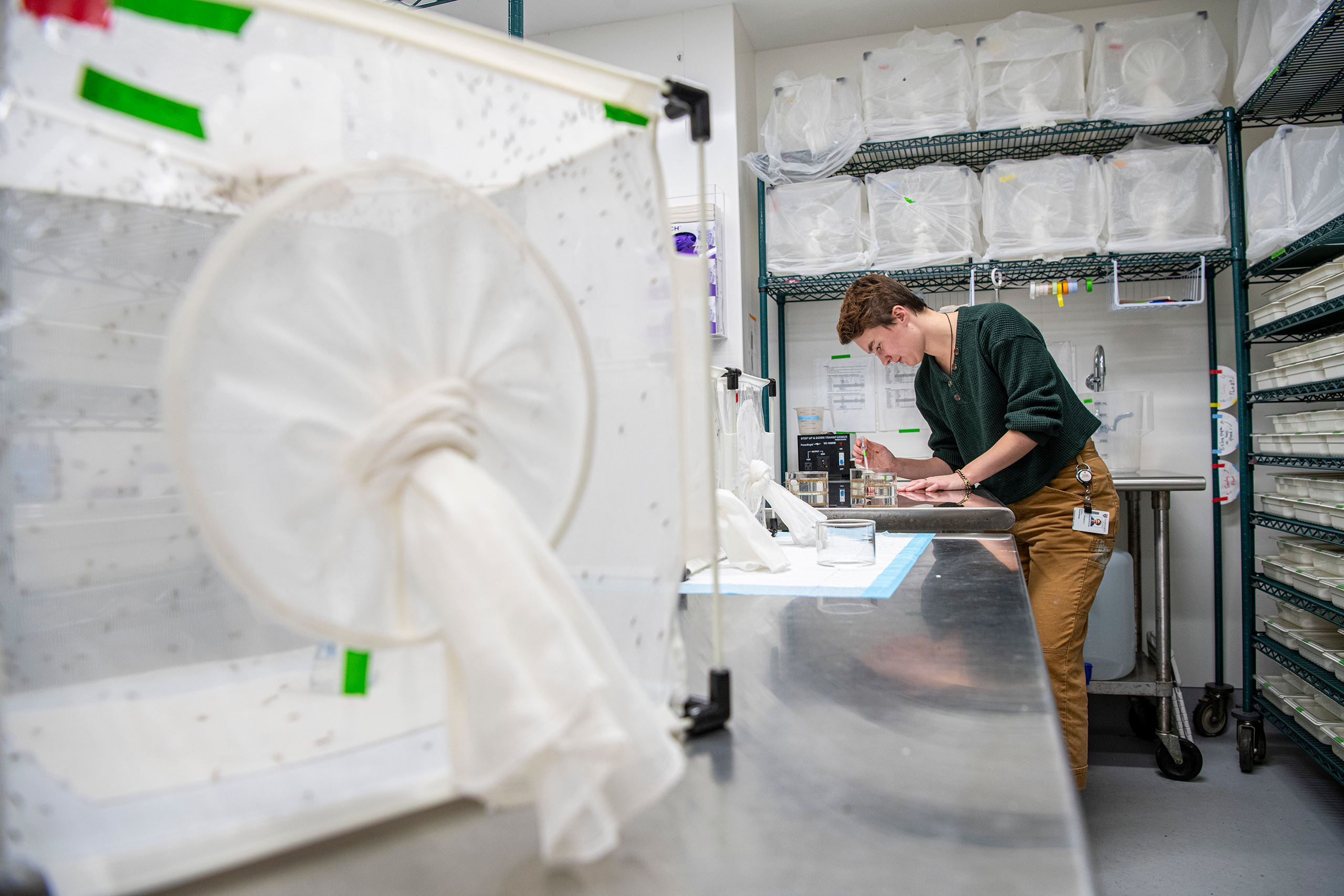
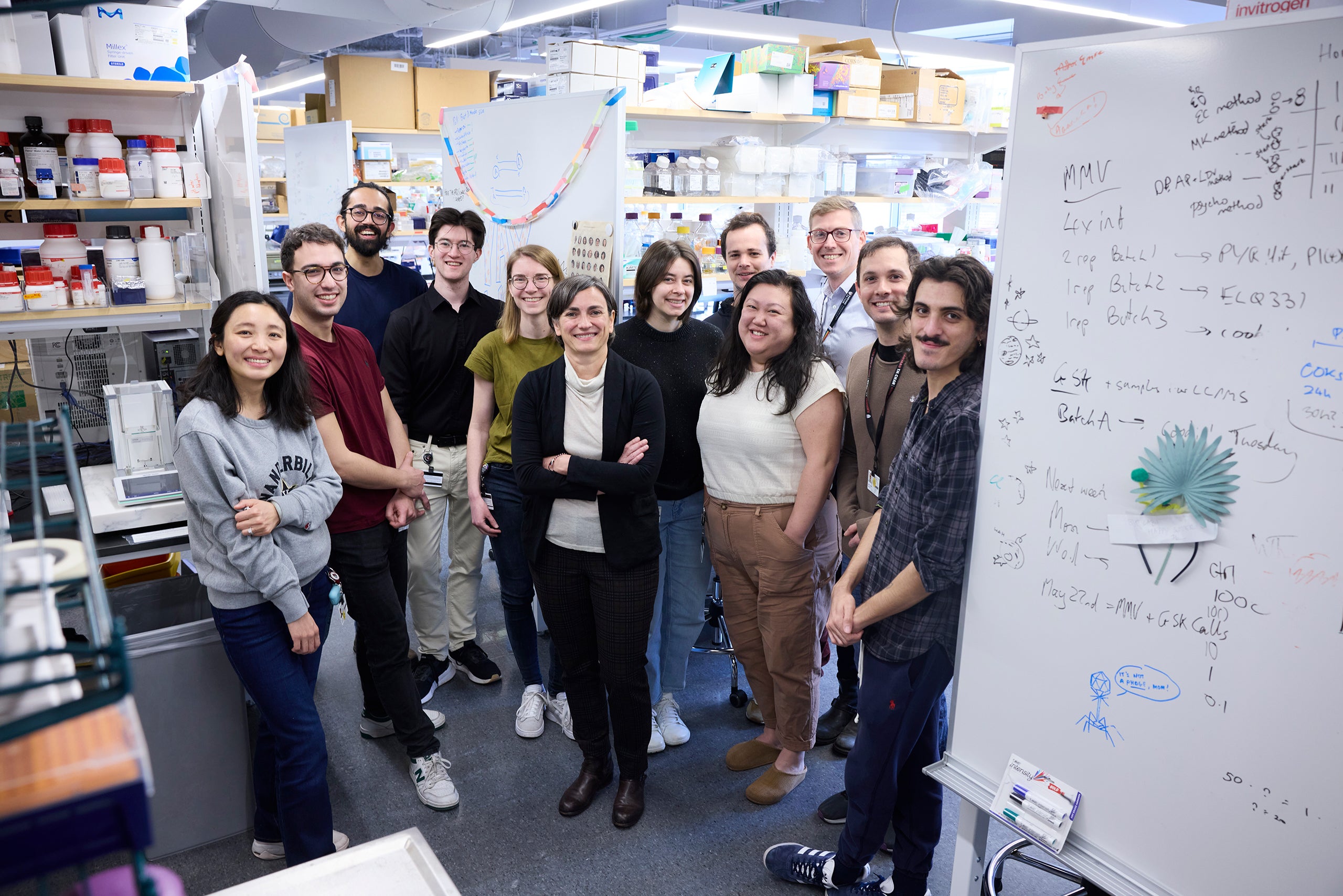
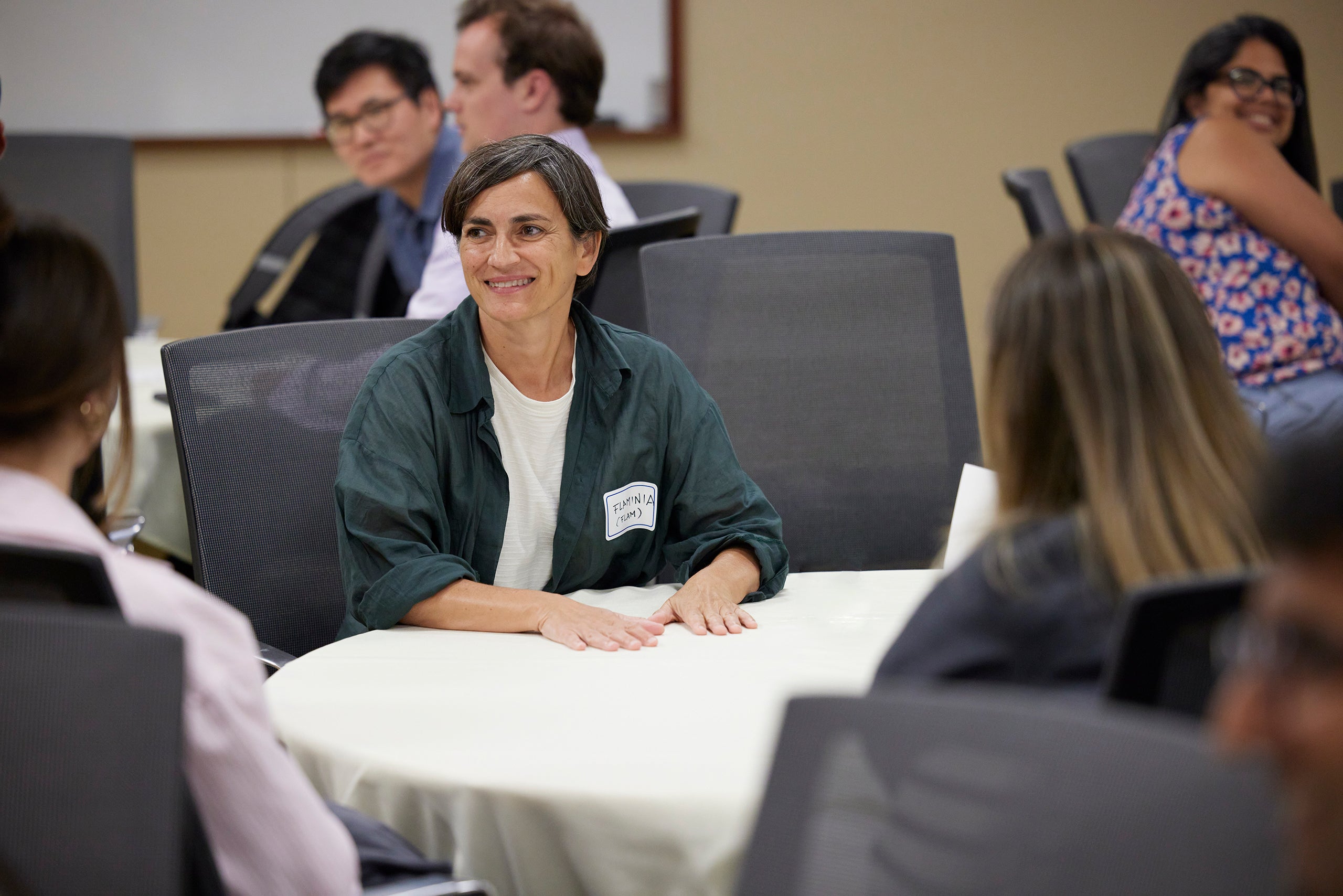
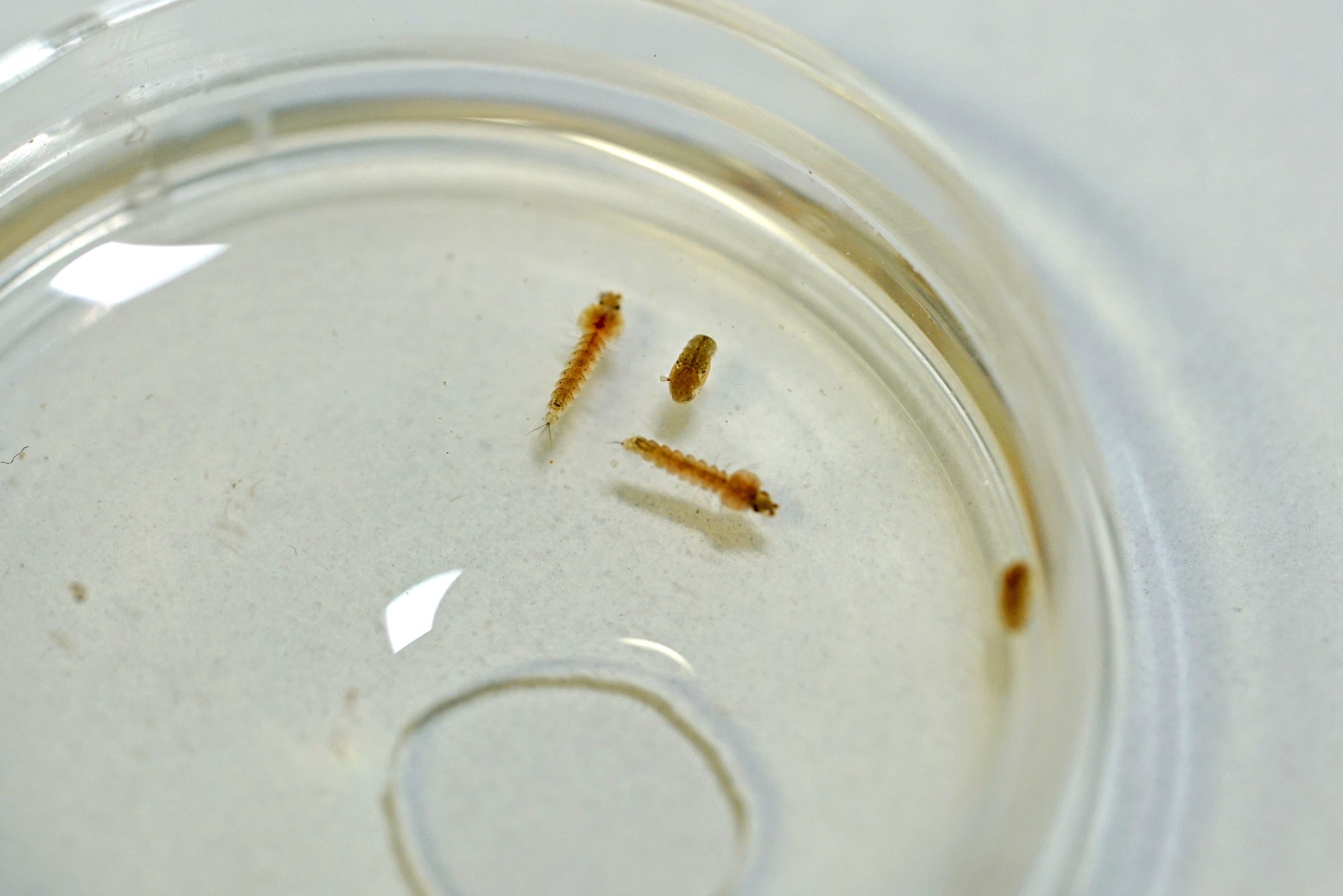
There is no effective treatment or vaccine for many mosquito-borne diseases, and controlling the mosquito population remains the most effective way of keeping these diseases in check. Owing to widespread insecticide resistance amongst mosquito populations, there is a crucial need to develop viable alternative methods for vector control.

Our Research
Mosquito reproductive biology: How genetics and evolution affect their ability to spread diseases
In our research, we’ve been studying how certain hormones affect mosquito reproduction. We’re currently investigating how some of these hormones and blood feeding work together to influence mosquito reproduction, which could lead to new ways to control mosquito populations and combat malaria.
Mosquito pathways that facilitate Plasmodium development
We are studying the physiological factors that are exploited by Plasmodium parasites (P. falciparum and P. vivax) for their own development using a variety of mosquito species in combination with both laboratory and field isolates of human malaria parasites.
From the bench to the field: generation of tools to reduce the malaria burden
Our lab is strongly invested in developing translational tools to prevent malaria transmission. We aim to translate our laboratory findings into novel products that can aid current insecticide-based programs or provide effective alternatives to insecticide use.
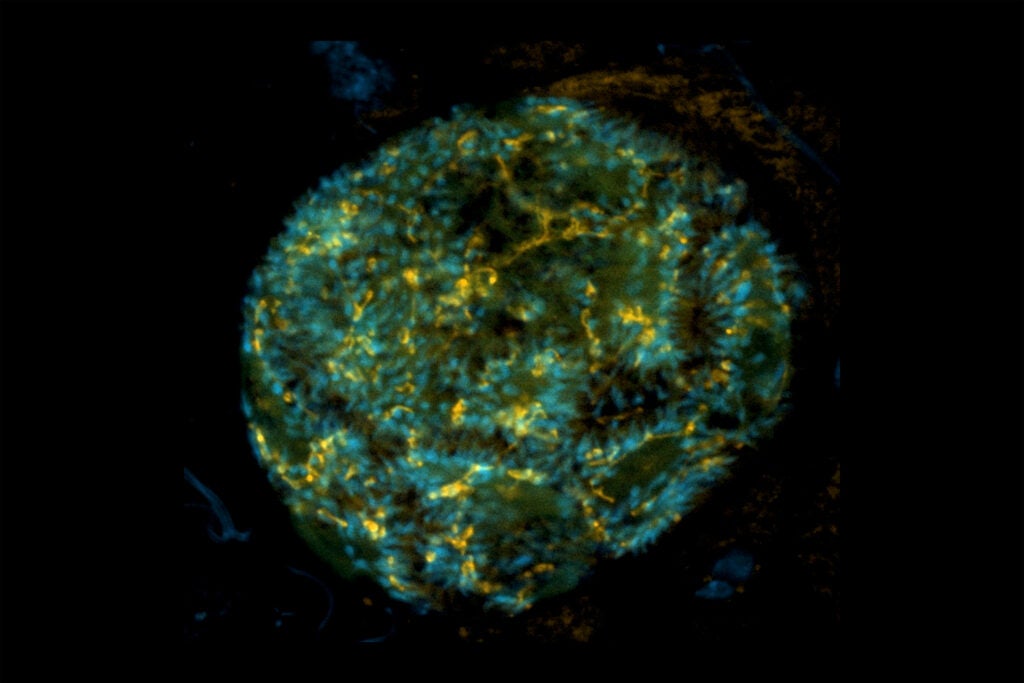
Field Work
A key component of our research includes fieldwork studies in Africa on mating biology and natural malaria infections.
Collaborations in Africa
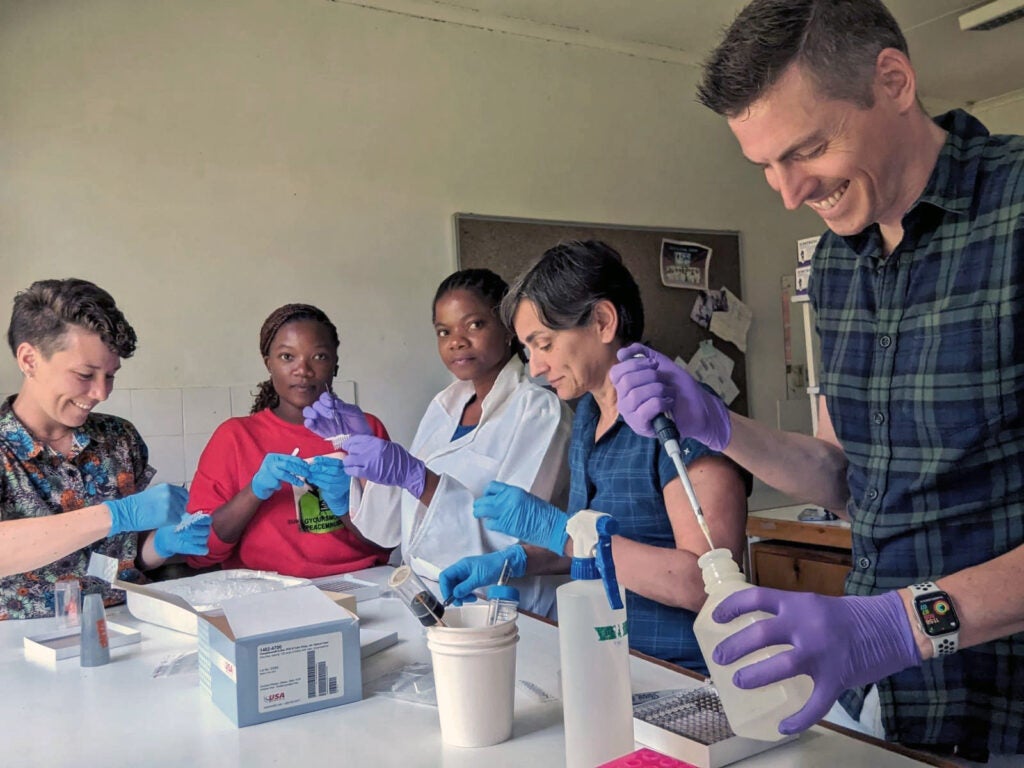
These studies, in collaboration with IRSS in Burkina Faso, ICIPE in Kenya and other partners, are expanding our understanding of mosquito reproductive biology, mosquito-microbiota interactions, and natural malaria infections.
Rob and Kelsey went to Malawi last February to continue our collaboration with the Malaria Alert Center at the Kamuzu University of Health Sciences in Blantyre. This will be the second year our lab has traveled to Malawi to work alongside the researchers at the MAC.
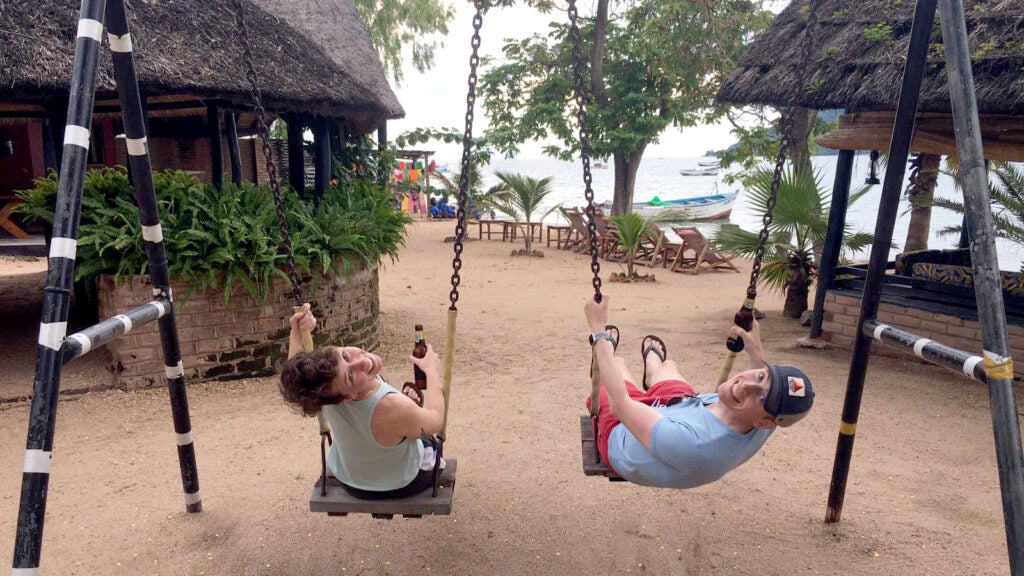
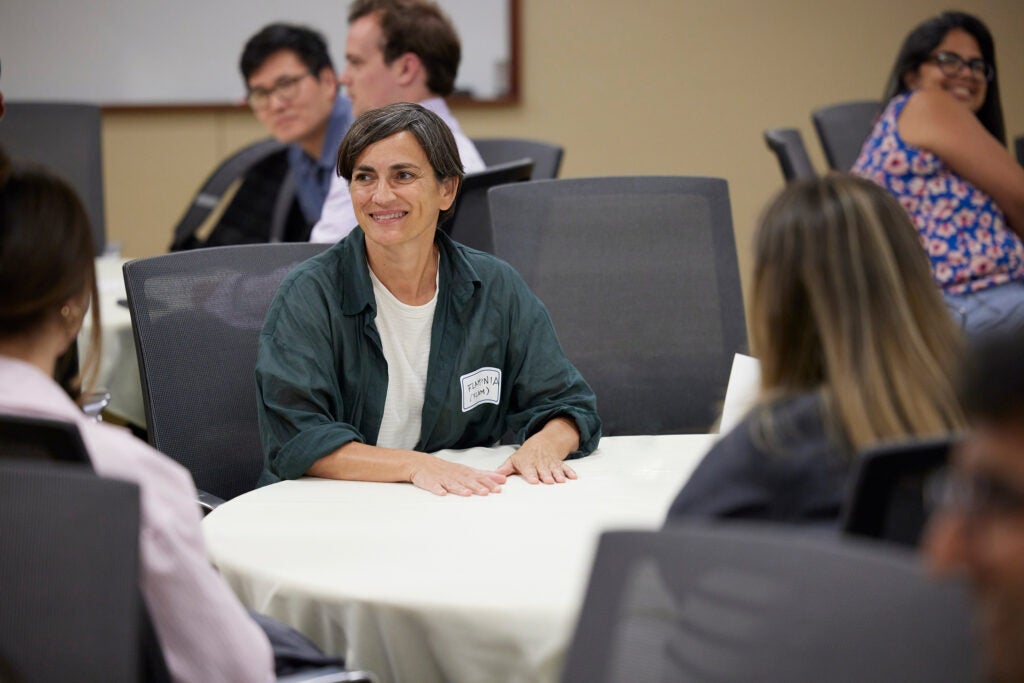
Featured News
Flaminia Catteruccia elected member of National Academy of Sciences

Members are elected to the NAS in recognition of their distinguished and continuing achievements in original research, according to an April 30 release from the organization. Membership is a widely accepted mark of excellence in science and is considered one of the highest honors that a scientist can receive.